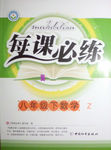题目内容
A new laboratory is under__________.(建设)construction

 每课必练系列答案
每课必练系列答案King’s College Summer School
King’s College Summer School is an annual(每年的) training program for high school students at all levels who want to improve their English. Courses are given by the teachers of King’s College and other colleges in
More information is as follows:
Application (申请) date ●Students in New York should send their applications before July 18, 2009. ●Students of other cities should send their applications before July 16, 2009. ●Foreign students should send their applications before July 10, 2009. | Courses ●English Language Spoken English: 22 hours ●American History: 16 hours ●American Culture: 16 hours |
Steps ●A letter of self-introduction ●A letter of recommendation(推荐)
The letters should be written in English with all the necessary information. | Cost ●Daily lessons: $200 ●Sports and activities: $100 ●Travels: $200 ●Hotel service: $400 You may choose to live with your friends or relatives in the same city. |
Please write to: Thompson, Sanders 1026 King’ s Street E-mail: KC-Summer-School@ yahoo, com | |
73. You can most probably read the text in ________.
A. a newspaper B. a travel guide C. a textbook D. a telephone book
74. Which of the following is true about King’ s College Summer School?
A. Only top students can take part in the program.
B. King’ s College Summer School is run every other year.
C. Visits to museums and culture centers are part of the program.
D. Only the teachers of King’ s College give courses.
75. If you are to live with your relatives in
A. $200 B. $400 C. $500 D. $900
76. What information can you get from the text?
A. The program will last two months.
B. You can write to Thompson only in English.
C. As a Chinese student, you can send your application on July 14, 2009.
D. You can get in touch with the school by e-mail or by telephone.